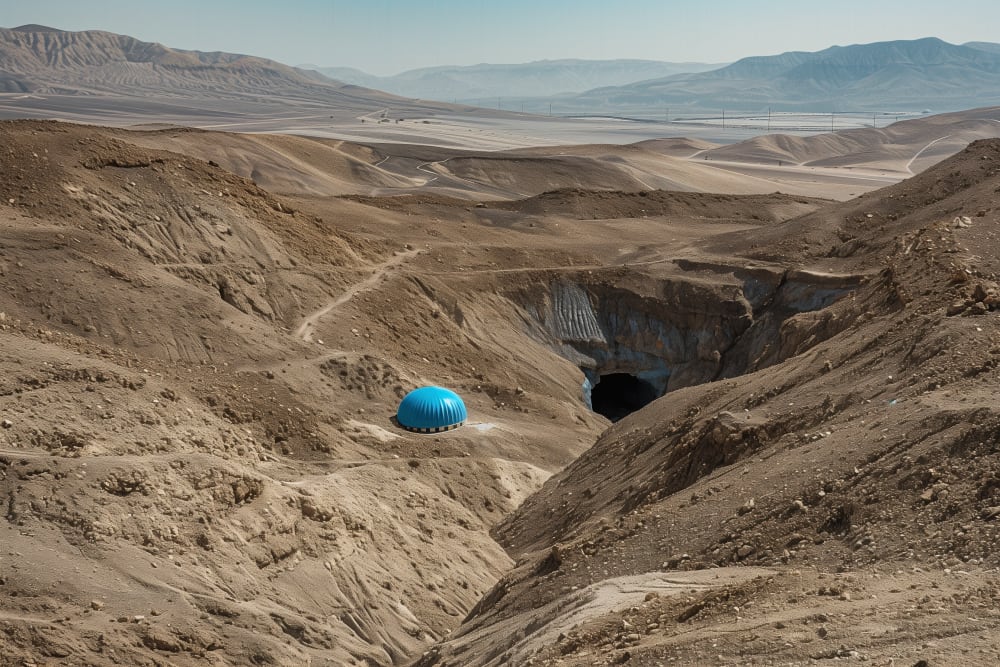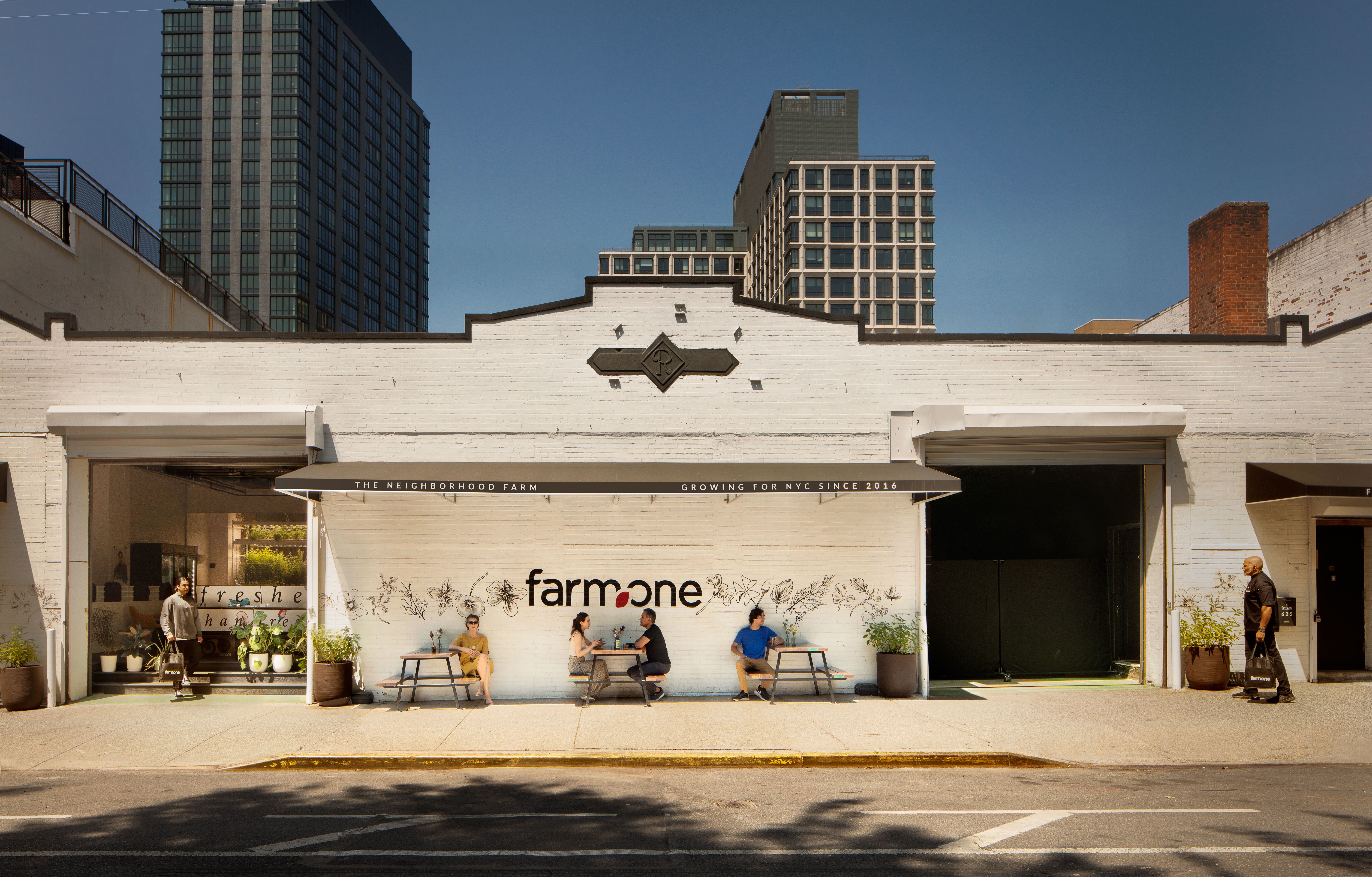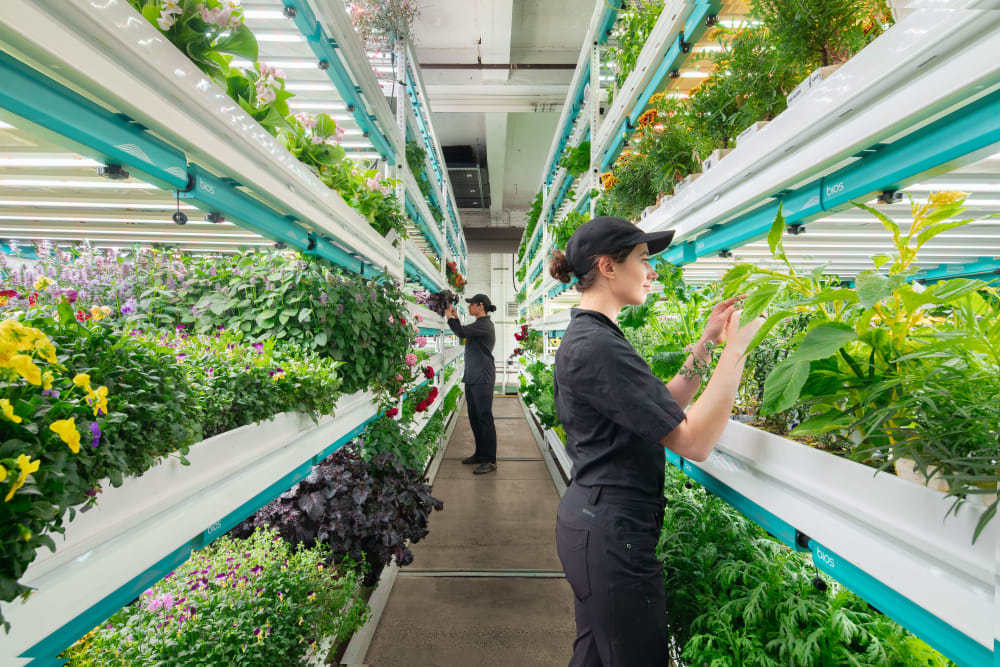
Meet: Robert Laing

- Written byGiada Maestra
- Published date 03 July 2024

We caught up with UAL alumni Robert Laing on his experience of being a multi-start-up founder. Graduating in 2003 with a BA (Hons) in Graphic Design from Camberwell College of Arts, Robert runs a thriving business called Farm.One, specialising in growing hundreds of rare plants for Michelin-starred chefs of New York.
What did you study at UAL and why did you choose it?
I studied Graphic Design, and I chose it to scare my parents and have fun whilst making weird things with my favourite kind of people. It was a perfect mix of complete freedom and being surrounded by smart, fascinating students and tutors doing ambitious things and expecting really high quality. I watched Neighbors for the whole of the first year and then worked harder than I had ever worked before, 24/7 for the last two years. It was the best, 10/10.
Can you share your most cherished memory from your time at UAL?
Preparing for the final show is a bittersweet, magical time, in a meaning-filled space. At every corner you discover new, surprising creations made by some of your closest friends, who have inspired you, introduced you to new influences and lived rich and surprising moments alongside you.
What have you been doing since graduating?
I helped build one of the earliest music streaming sites: Last.fm.
I started a design agency and moved to Tokyo.
I started a language tech startup called Gengo. Having raised money from VCs, it was successfully growing. I was ousted in a dramatic boardroom coup and the company was acquired.
In 2016 I moved to New York and started Farm.One.
I’ve also created moonshot sustainability projects like the Plastics Data Platform at Google.
What is Farm.One and how did you conceive this idea?
Farm.One is a vertical farm growing hundreds of rare edible flowers, herbs and other crazy year-round plants for Michelin-starred chefs in New York. All grown without pesticides.
Living in Japan I fell in love with their food culture, especially the fruits and vegetables (you should try the strawberries, they will blow your mind). So I decided to go to New York and bring the radically high quality from Japanese agriculture with me. I then combined it with the technology of LED lights and hydroponics, and sustainability choices like reusable packaging and bicycle delivery service. I had literally no idea what I was doing, which is sometimes necessary.
We started growing a huge selection of rare crops in a tiny space in Manhattan, and quickly captured the imagination of Michelin-starred chefs in New York. We created a business with dozens of clients from the best restaurants in the city, and we have thousands of visitors touring the farm each year.
But it was a rollercoaster — we weathered Covid-19 which put all our customers out of business, and then a near-closure in 2022, staying alive by the skin of our teeth. Now we have a stunning 10,000 square foot indoor farm in Prospect Heights, a beautiful neighborhood of Brooklyn. The farm is a multisensory place for people of all ages to visit, we host all kinds of events and educational programs, and also now brew beer on site, infused with herbs that we grow. I sold a majority stake of the business in 2022, but I’m still good friends with the team and we'll continue to expand.
What does Sustainable mean to you?
When we say “Sustainable” we tend to think about materials and tech, and I’ve been lucky enough to work on projects in those areas. But sustainability is as much about how we work together, how we treat ourselves, each other, and especially “other others” — those who are not like us. CEOs and other leaders make decisions that have a disproportionate impact on our planet. I’ve started to work with a group of folks here in New York that are looking at ways to help leaders adjust their ways of thinking, including the expansive impact of psychedelic experiences on their decision-making.
Are there any other projects or significant accomplishments you would like to highlight?
I want to shout out WE’RE PLASTIC, which is an immense sculpture gallery in a currently secret desert location, featuring a growing and permanent collection of outdoor works entirely created from plastic waste. This practice safely archives plastic waste for thousands of years and highlights the scale of the waste that humanity creates. Volunteers from around the world assist artists in creating unique onsite works. The leadership of WE’RE PLASTIC is magnanimous, secretive and fickle, and always seeking funding.
What advice would you give to fellow alumni who want to set up their own business?
Do it with the knowledge that your presence and ideas as a creative are VALUED and it will only become MORE VALUABLE over time. Start a business early and get experience. Don’t just make stuff for money-focused people. Work with people into whom you are overjoyed to invest a huge amount of effort. Do it in person if you can, have stupid fun making cool shit with nice people and save the planet.
Future plans for both you and Farm.One?
I’m a two-time founder and I have been lucky enough to have both startups acquired. But I’ve also seen a ton of crazy, difficult stuff along the way — economic turmoil, co-founder beef, layoffs, failures. So now I coach ambitious folks: founders, CEOs and creative leaders. Leaders need a coach to help them achieve their dreams, and not get thrown around in the wind. I love it because I get to help a diverse group of amazing people create an amazing and positive future.


